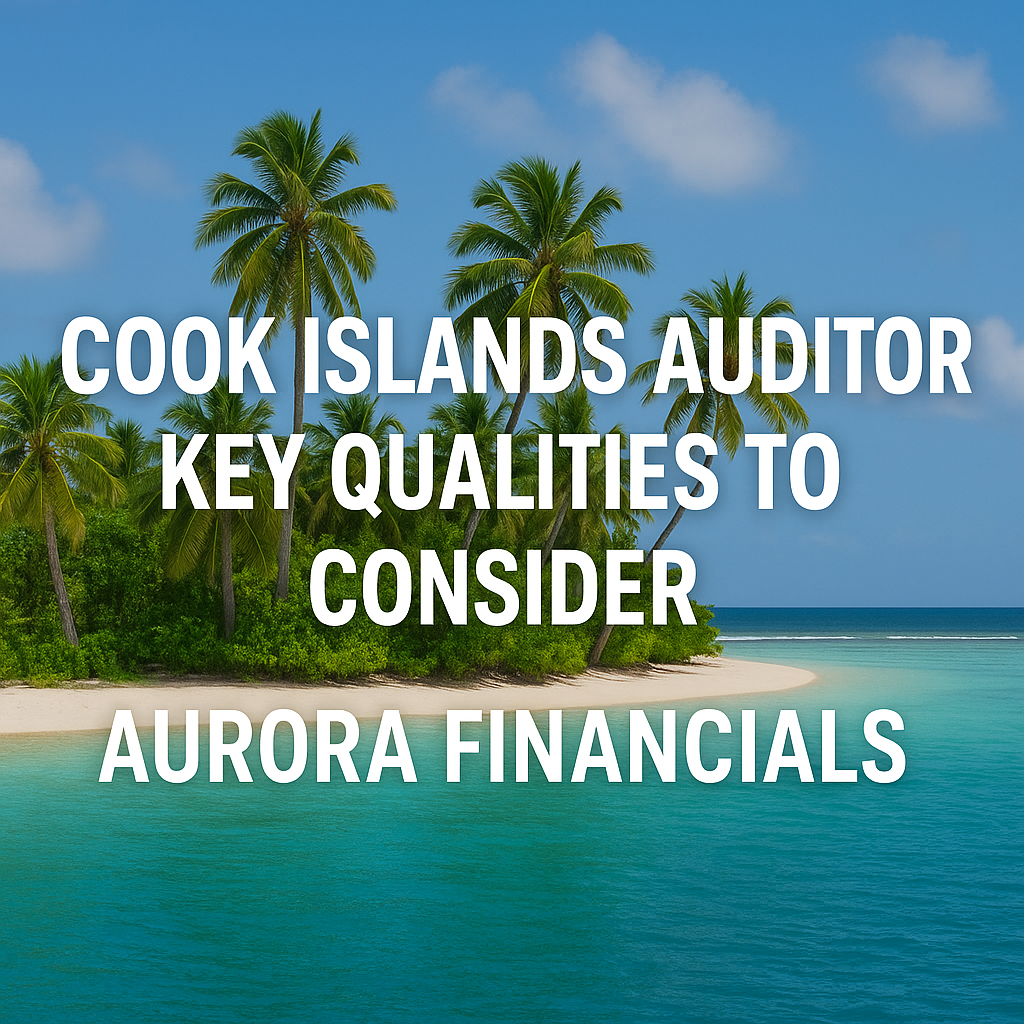If you’re looking to hire a Cook Islands Auditor—either for your business or for government-related work—there are some important things you should know. This article will help you understand the laws, qualifications, and best practices to consider when choosing an auditor in the Cook Islands.
Understanding the Role of the Cook Islands Auditor
The role of a Cook Islands Auditor is shaped by a strong legal framework and a focus on transparency. For public entities, the Cook Islands Audit Office is primarily responsible for conducting audits, particularly where government funds are involved. They operate under the authority of Article 71 of the Cook Islands Constitution and the Public Expenditure Review Committee and Audit Act (PERCA) 1995–96. These establish audit responsibilities for public finances and reinforce oversight by Parliament.
Private sector entities, such as companies and banks, engage independent auditors approved under local law. These professionals are vital in ensuring businesses remain compliant with financial standards and reporting requirements.
The Ministry of Finance and Economic Management (MFEM) Act adds another layer of financial control and improves transparency across public budgeting and reporting systems.
In the banking sector, auditors must meet requirements laid out by the Financial Supervisory Commission (FSC). These include being part of internationally recognized accounting bodies and demonstrating independence. Banks should submit their audited financial reports within four months of their year-end.
For tax audits, the Revenue Management Division applies risk-based approaches to ensure correct tax declarations and payment. Auditors may be engaged to assist in ensuring compliance through careful financial reviews.
Together, these elements create a strong and transparent auditing environment in the Cook Islands.
Key Qualities to Look for in a Cook Islands Auditor
Hiring the right Cook Islands Auditor involves more than checking certifications. Below are essential traits and qualifications to consider:
Education and Experience
Most professional auditors hold a degree in accounting or taxation, with at least five years of experience in auditing. For niche sectors like banking, experience must also include auditing financial institutions and membership in a globally recognized accounting body. In some cases, 12 or more years of practical experience in finance or taxation—combined with some formal education—may meet the requirements.
Independence and Fairness
Local regulations place a strong emphasis on auditor independence. Auditors cannot have personal, financial, or professional ties with the organizations they audit. This includes restrictions on being a director, employee, or business partner of the audited entity. Auditors must submit a formal declaration stating they have no conflict of interest before undertaking any engagement.
Strong Ethical Principles
Ethics in auditing is non-negotiable. Professionals in the Cook Islands are expected to follow strict codes like the INTOSAI Code of Ethics (ISSAI 130). These standards promote honesty, transparency, and professionalism, ensuring that the audit results are trustworthy.
Commitment to Quality
High-performing auditors maintain a System of Audit Quality Management (SoAQM). This system helps them assess audit risks, ensure consistency, and fix issues promptly. In the Pacific region, quality standards are further supported by membership in bodies like PASAI (Pacific Association of Supreme Audit Institutions), which offer training and peer support to improve auditing quality.
Technical Skills and Problem-Solving
Modern auditors must be proficient in audit software, data analysis, and report writing. Beyond technical competence, they should be able to think critically and solve problems. Whether they are doing financial, compliance, or performance audits, their ability to interpret complex data accurately is key to a successful audit.
How to Evaluate Cook Islands Auditors
Hiring the right auditor involves thorough due diligence. Here are practical steps to guide your selection:
- Check the official registry of approved auditors. This list is managed by the Registrar and includes names of professionals who meet Cook Islands standards for education, experience, and ethical conduct. Notable registered auditors include Cecile Marten, Tearuru E.J. Maoate-Amataiti, and Craig Pieter Rossouw.
- Verify their credentials with the Ministry of Justice or relevant regulatory bodies. Only those who are officially registered may conduct audits for public or regulated entities.
- Ask about the auditor’s previous clients and sectors they’ve worked with. This will give you a sense of their experience and capability.
- Be aware that audit services in the Cook Islands are subject to a 15% VAT, so ensure that your budget includes this cost.
Due to a regional shortage of qualified professionals, it’s important to act early and hire auditors with verified skills, experience, and integrity.
Conclusion
Hiring a Cook Islands Auditor is an important decision that directly affects your organization’s transparency and compliance. This guide outlined the legal framework, required qualifications, and key traits of a trustworthy auditor.
The country’s auditing system is supported by strong legislation like PERCA and the MFEM Act, and it places high importance on independence, ethical conduct, and audit quality. With a growing demand for clean financial reporting, qualified auditors play a crucial role in both public and private sectors.
At Aurora Financials, we offer remote-first accounting and audit solutions to clients in the Cook Islands. With our cloud-based systems and emphasis on transparency, we help businesses stay compliant and financially sound—even in regions where professional services are limited.
If you’re planning to work with a Cook Islands Auditor, focus on professionals with proper certification, solid experience, and a strong ethical record. Your choice of auditor can make all the difference in building trust and maintaining compliance.
FAQs
Q1: What laws define the role of the Cook Islands Auditor?
The auditor’s role in the Cook Islands is governed primarily by Article 71 of the Constitution and the Public Expenditure Review Committee and Audit Act (PERCA) 1995–96. These give authority to audit all public funds and ensure proper oversight. The MFEM Act adds structure to public financial reporting and budget control. Together, these laws promote accountability and uphold financial transparency across both public and regulated private sectors.
Q2: What qualifications should a Cook Islands Auditor have?
A Cook Islands Auditor should have a degree in accounting or taxation, along with at least five years of relevant experience. For specialized audits—such as for banks or large institutions—they must also belong to a recognized accounting body. In some cases, significant experience (e.g., 12+ years) can substitute for formal qualifications. Always verify qualifications through the official registry and confirm their status with the Ministry of Justice.
Q3: How can I make sure an auditor is officially recognized?
To confirm an auditor’s recognition, consult the official registry managed by the Registrar. This list includes professionals who meet legal and professional standards. You can also contact the Ministry of Justice for verification. Only approved auditors can legally perform audits for public or regulated entities. Always request proof of registration, review past audit reports if available, and confirm that there are no conflicts of interest.






